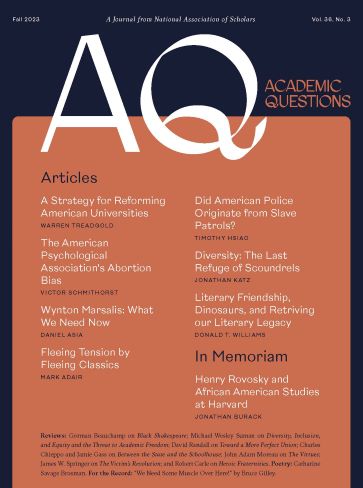Wynton Marsalis and his music are very much in the news these days. A new piece of work of his was recently premiered by the Cleveland Orchestra, he gave the commencement address at the University of Michigan this spring (2023), and he has recently been in Seattle (where it so happens I grew up), opining on why jazz is essential to Seattle’s schools. As the artistic director of Jazz at Lincoln Center, Marsalis is widely regarded as the major spokesman for jazz in America. How did he get to his current status? The story can be traced in a book he wrote fifteen years ago, Moving to Higher Ground: How Jazz Can Change Your Life (2008).
The artistic and creative personae of a performer or composer is a manifestation of his entire life experience, everything that he has listened to, and his basic constitution and personality. In the arts, we wish to know about the painter or composer because it comes from “inside,” the same place where the inspiration for his art derives. Thus, we find in Wynton Marsalis’s book many stories about his family, upbringing, educational and listening experiences, and conversations with other musicians, artists and the like. The style is conversational while at the same time filled with elevated truths about music and its relationship to life in all its complexities. And then again it is all about—what else—jazz.
Marsalis and I crossed paths in 1979 when we were both at the Boston Symphony Orchestra’s Tanglewood program in the Berkshire mountains. He was a seventeen-year-old phenomenon playing in the orchestra, and I was a composition Fellow studying with Gunther Schuller, who had admitted both of us into our respective programs. Marsalis and his musical work are a case study for the significance of American music and the need to further its creation. As an American composer who very much seeks to do the same, and who tries with all the vim and vigor I can muster to do so, I found affinity between his musical experience and my own, even though I am in the classical field and he in jazz.
Like most composers, I began my musical life playing an instrument. Mozart and Beethoven’s instrument of choice was the piano, although Mozart also played the violin, like his father and taskmaster, Leopold. Berlioz was, believe it or not, a guitarist. My instrument of choice was the trombone. Well, it was almost my instrument of choice. I really wanted to play the clarinet, but was told by my third grade music teacher that my front teeth protruded a bit too much for that instrument, and suggested the trombone instead. I started taking lessons and discovered that not only did I enjoy playing the instrument, I had a certain knack for it, an innate musicality. I had formerly displayed an interest in singing camp songs and playing all of the plates and glasses in Chinese restaurants with the ubiquitous chopsticks. I played in the usual bands and chamber music groups at school. By my high school years I had picked up the trumpet, the recorder, and classical guitar. I took lessons in jazz from the great Seattle teacher Jerry Grey, who taught the legendary jazz performers Larry Coryell (who began Jazz Fusion) and keyboardist Stuart Goldberg (who played with Larry and many of the other greats). Jerry introduced me to the basis of jazz, namely the blues. While I was doing two years of classical theory with Peter Seibert, my wonderful high school teacher who was an early advocate of what we now call Early Music1, I was also learning to swing the blues with Jerry. From both, classical and jazz, I was learning what a true musical idea is.
At the same time, I worked my tail off on the trombone, and was rewarded by being accepted into the Seattle Youth Symphony, the incubator of numerous highly successful classical performers, including Steve Ansell, now principal violist of the Boston Symphony Orchestra, and Rolf Smedvig, formerly principal trumpet player of the same. I dropped out pretty soon thereafter because I discovered that a trombonist’s life in an orchestra was not for me. In my latter high school years, I played in a professional big band or two around town, and was asked upon graduation to join a Blood, Sweat, and Tears knock off band and tour up and down the West Coast. I decided not to do so, but rather to head off to Hampshire College—where I ended up studying composition, conducting, and Modern European History (the Holocaust, its antecedents, and consequents). I did a great deal of listening to recordings, mostly about music in the classical literature, from the medieval period to what was then current in the seventies, from Dufay to Penderecki, from Ockeghem to George Crumb, and Mauchaut to Druckman. Also included were Monk, Miles, the Adderley brothers, Weather Report, and other jazz greats.
While I had this eclectic musical background, Marsalis’s orientation was almost always toward jazz. He grew up in and around New Orleans and began playing the trumpet at an early age. His home was one of love and discipline. His father was a well-known jazz piano player, who took him to play with a well-known old timer’s jazz band early on. This taught him that jazz is about tapping into your own creativity, that it is a group activity, that it is about bringing out the individual nature of your instrument and soul, as the music that you create is an admixture of both. In musical composition and performance, you have to say something, and whatever it is, it should be authentic.
But you must have a vocabulary to speak. Where does the jazz performer or composer acquire this? Through all of that music that has gone through his ears and into his brain. At twelve, Marsalis began listening to many great jazz trumpet players, including Clifford Brown, Miles Davis, and Freddie Hubbard, not to mention the great saxophonist, John Coltrane (known as ‘Trane. Jazz greats are often called by their first name or a moniker. Jazz is a democratic art form, and even the greatest are “of us”). Coltrane is known for playing cascades of notes, but it was the sweet moments in Trane’s music and the others that made Marsalis’s breath stop. It was that moment of the real thing, what my teacher Jerry Grey meant when he would call out to me during an improvisation: “Now THAT’S an idea.”
Marsalis learned to really listen to jazz and to himself. As he writes,
The most popular music of my youth thrilled people with illusion, sentimentality, and showmanship. Music was just one of the tools we employed to create excitement. The jazzman’s objective, however, was solely musical: Through improvisation, he wanted to take people deep into his actual feelings and his world.
This is a very similar perception to that of Roger Scruton’s differentiation between entertainment and art. Entertainment is how the music or movie affects me, and therefore how it makes me feel. Art is about the aesthetic qualities of the object itself, and I am asked to acknowledge it with a certain Kantian disinterestedness, but also with love and affection. Art and jazz are about the soul as well as the heart. So for Marsalis, jazz raises the blues, essentially folk music, to a higher, and therefore a truly artistic, level. This is because jazz musicians, whether Armstrong, Ellington, or Davis, were virtuosos of their instruments and compositional craft and art. Marsalis also knows that listeners are part of the equation. They must be engaged intently and deeply. This is true also for any listener of classical music. The experience of listening, in fact, should be exhilarating, thrilling, and a bit tiring. A good listening experience, just like playing an instrument, should be hard to come down from.
Marsalis writes that jazz is about “the importance of expressing the core of your unique feelings and the willingness to work things out with others.” In this it is somewhat different than the classical music tradition, where the composition, which is mostly written down, is the sole artifact of the composer’s mind. Marsalis is smart and musically well-versed. He mentions the masterpieces of Bach, Beethoven, and Matisse; that these must remain and in fact are alive in our culture. Importantly, they are masterpieces and the result of an individual’s creativity, dedication, and hard work. It was this that I learned so critically from my teachers as well.
Time is the lifeblood of jazz. Being in it, to swing, is the goal. To know when to be in or out, loud or soft, or how to respond to what just happened, is all part of the experience. Jazz is also about the process of giving birth to an idea, and then seeing how that idea will develop. Classical works are tidier. The composer has been able to jettison mistakes and create a final finished product as perfect an artifact as he can make. It is created outside of time. It transcends human mistakes. Jazz can include mistakes because it is about the nature of real life with all of its unpredictability and imperfections.
Soon after arriving in New York City at the tender age of seventeen, Marsalis met Stanley Crouch and Albert Murray, intellectuals who engaged with jazz as part of the larger culture of Western civilization. In his important book The Omni-Americans (1970), Murray writes that Americans are all of one culture formed of black and white, and that our similarities are much greater than our differences. Both he and Marsalis argue that all that matters is what you have to say and whether you have the equipment to say it. For them, as for me, jazz—like any other art form—is hierarchical; differences of good and bad, higher or lower, are grounded in the artistic capabilities of the individual. Jazz might be about the response of the group to each other, but each individual member is a virtuoso. Both men note that from the beginning jazz was a place of integration, where quality and integrity were all that mattered: “Social order on the bandstand is determined by ability.” Hence, the “higher ground” stated in the book’s title refers to both elevated musical ability as well as the social and spiritual heights such high quality music can engender.
Jazz is based on stories and records. The stories are of how musicians interact, what someone said about someone else, how to think about a particular tune. Musicians can often be hard with each other, or nice. You choose your way depending on who you are and with whom you are communicating. Much of the history of jazz is on disc, as it began at the same time as the rise of recordings. These recordings often take the place of musical scores, and they are what young musicians use to learn certain compositions or how a particular player plays them. They are, to a large extent, the history of the medium. But like any music, it really must be heard live to have the fullest experience. As Charles Mingus said: “If you weren’t there—you missed it!”
There are two teaching chapters in Moving to Higher Ground, one on the blues and the other on jazz. Marsalis does a good, if somewhat simplistic, explication of both. Remember, music of any sort is a language, and it is hard to teach even the basics of a language in such short order. But it will do.
Marsalis devotes an entire chapter to the great masters of jazz and their recordings. A brief discussion of each performer is accompanied with a list of his best recordings, according to Marsalis. He is opinionated—for example, he takes great umbrage at Miles Davis’s Bitches Brew and anything of his thereafter—but, given his stature and comprehensive view of the landscape, Marsalis is entitled. Generally, his comments, mostly anecdotal, provide insights into the nature and character of each jazz master.
By the book’s end, Marsalis weighs in on the matter of jazz, creativity, and the place of the arts in society in general. Like in many improvisations, there is some dross, but there are also nuggets that matter. He decries our impoverished cultural agenda, which includes popular music of most forms, the selling out of the arts for fame and fortune, our moral corruption, “with wild, out-of-control young people.”
As a young professional, Marsalis for a time played both classical and jazz. But eventually he had to make a choice of whether he wished to play the same standard classical concertos over and over, or immerse himself in the improvisational world of jazz. He took the latter course, and I am glad he did. Moving to Higher Ground makes the case for his singular journey in the world of jazz. Like Schuller, he deprecates commercial (Schuller’s term) or popular (his term) music, as it is not art, but rather a cheap imitation of what art should be. I appreciate that Marsalis seeks the real and authentic in his art. He has written crossover music, jazz and classical, which I find less successful than his jazz. It is anodyne in a way that his improvisations are not.
Overall, Marsalis argues for the need of all the arts and expressive creativity to be raised up in America. He writes,
They are. . . . an expression of feeling and a supreme expression of our humanity. We have an artistic imperative to understand and reengage creativity and innovation, not merely as tools for economic growth but as tools for democracy and accomplished scholarship . . . The best jazz has always been the embodiment of integrity and conviction.
As a composer in the classical tradition, I could not agree more with these sentiments. In the words of the famous jazz composition by Norman Mapp, “jazz ain’t nothing but soul,” and in our world now we need soul more than ever.
Daniel Asia is an American composer whose work ranges from solo pieces to large scale multimovement works for orchestra, including six symphonies. Since 1988, Asia has been Professor of Composition and head of the composition department at the University of Arizona in Tucson; [email protected]. He wrote “Culture and Cultural Appropriation” for our Winter 2022 issue.
1 Early Music as a term applies generally to music composed in the Medieval (500–1400) and Renaissance (1400–1600) time periods.














